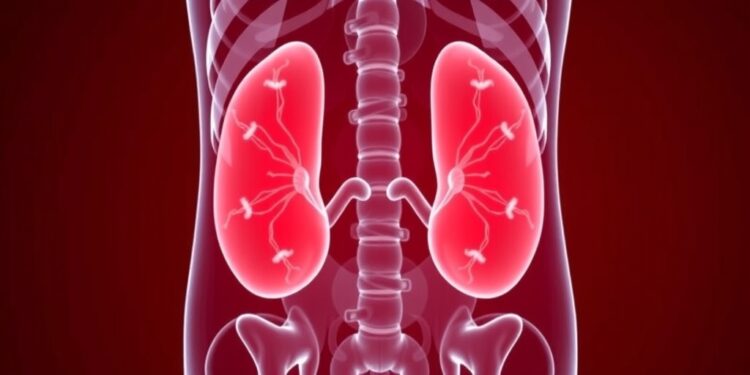In an exciting breakthrough at Weill Cornell Medicine, researchers are harnessing the transformative capabilities of artificial intelligence (AI) and machine learning to enhance the prediction of treatment responses for patients suffering from muscle-invasive bladder cancer. This innovative approach marks a significant departure from earlier predictive models that relied on single data types, showcasing the advantages of integrating multidimensional datasets in a cohesive, AI-driven framework. The implications of such advancements resonate deeply in the realm of precision medicine, highlighting the potential for tailored therapies that address individual patient needs more effectively.
Central to this pioneering work is the collaborative effort led by Dr. Fei Wang and Dr. Bishoy Morris Faltas, who bring together their distinct yet complementary expertise to tackle the complex challenges posed by bladder cancer treatment. Dr. Wang’s research primarily revolves around data mining and advanced machine learning techniques, while Dr. Faltas, an oncologist, possesses a rich understanding of bladder cancer biology. This blend of skills has proven to be a crucial asset in constructing a novel predictive model that not only considers tumor characteristics but also incorporates gene expression data, creating a holistic view of the cancer landscape.
The researchers tapped into valuable data sourced from the SWOG Cancer Research Network, which is renowned for its systematic approach to designing and conducting clinical trials across a variety of adult cancers. By aligning histological images of tumor samples with gene expression profiles—metrics that provide insights into which genes are active or dormant—the team constructed a model that significantly surpasses previous single-modality predictions. This paradigm shift underscores the necessity of employing comprehensive data sources to extract meaningful insights that can directly impact clinical outcomes.
In a remarkable demonstration of the model’s capabilities, the researchers applied advanced AI methodologies, specifically graph neural networks, to analyze the intricate organization and interactions of cancer cells, immune cells, and fibroblasts within the tumor environment. Through this meticulous approach, they utilized automated image analysis to discern various cell types present in the tumor, enabling a richer, more informed basis for their predictive algorithms. The amalgamation of these multifaceted data sources resulted in a predictive accuracy nearing 0.8 on a scale where 1 represents perfect prediction—a notable improvement over previous models which tended to hover around 0.6.
The pursuit of identifying relevant biomarkers—genes that correlate with treatment outcomes—has yielded promising leads, manifesting a clear intersection between biological significance and predictive science. Dr. Faltas expressed optimism, noting the validation of biologically pertinent genes within their dataset, thus affirming the hypothesis that their approach is unearthing meaningful discoveries. As the team continues to refine their model, they aim to expand the breadth of data utilized, considering mutational analyses of tumor DNA identifiable in blood or urine samples, and spatial analyses that can offer deeper insights into the tumor’s cellular composition.
One of the pivotal revelations from their findings is the interaction dynamics between tumor cells and their microenvironment, particularly how the ratio of tumor cells to normal tissue cells, like fibroblasts, can influence chemotherapy response predictions. Dr. Faltas hypothesized that an overabundance of fibroblasts might create a protective shield for tumor cells, thereby complicating the efficacy of chemotherapy. This hypothesis not only opens new avenues for research but also elevates the understanding of cancer biology within the clinical context.
As this groundbreaking research progresses, Drs. Wang and Faltas are dedicated to validating their findings across diverse clinical trial cohorts, with an ambition to employ their predictive model on a broader population of bladder cancer patients. The envisioned outcome of this work is a transformative one: a scenario where patients entering a physician’s office will have their unique data integrated into an AI framework, allowing for a precise score that predicts their response to specific therapies.
The journey towards implementing such a predictive model hinges on the broader acceptance of AI tools within the clinical sphere. Dr. Faltas envisions a future where oncologists not only rely on these technologically advanced predictions but also develop a profound understanding of their implications, enabling them to communicate effectively with patients. The trust in AI predictions will be a cornerstone of modern medicine, fostering an environment where data-driven decisions empower both clinicians and patients alike.
Furthermore, the research team is keenly aware of the potential ethical and practical considerations surrounding the integration of AI in clinical settings. Discussions surrounding the nuances of interpreting AI-driven predictions and ensuring that patients receive information they can understand and trust are paramount. The collaboration between computer scientists, clinicians, and bioethicists will be essential to navigate these complexities, ultimately ensuring that the advancements in AI translate to tangible benefits in patient care.
In summary, the involvement of advanced technologies in the understanding and treatment of muscle-invasive bladder cancer marks a critical juncture in medical research. The work from Weill Cornell Medicine serves as a beacon of hope, promising enhanced patient outcomes through personalized medicine strategies. As the researchers refine their model and explore further intersections of data types, the landscape of cancer treatment prediction is poised for transformation, significantly altering the journey for patients afflicted with this challenging disease.
Subject of Research: Predicting treatment responses in muscle-invasive bladder cancer using AI and machine learning.
Article Title: Advanced Predictive Modeling in Bladder Cancer Treatment through AI: A Milestone at Weill Cornell Medicine
News Publication Date: 22-Mar-2025
Web References: npj Digital Medicine
References: None provided.
Image Credits: None provided.
Keywords: AI, machine learning, bladder cancer, predictive modeling, precision medicine, gene expression, tumor imaging, biomarkers.




